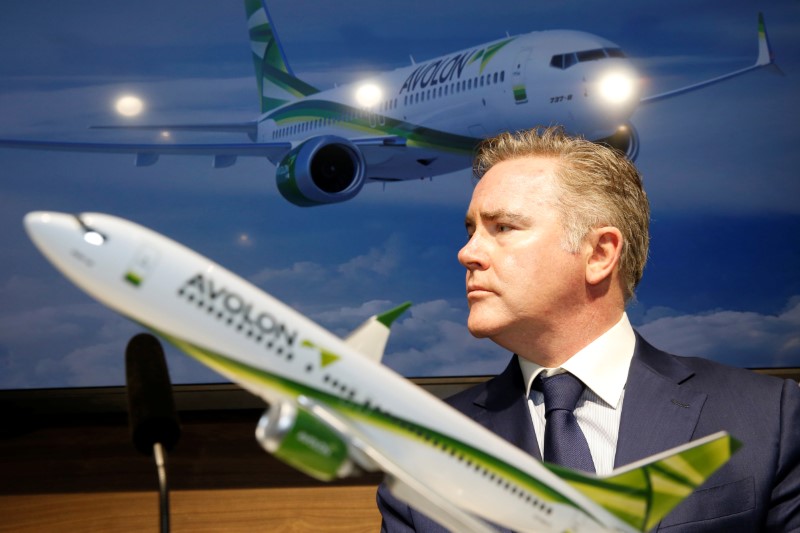This post was originally published on this site
https://i-invdn-com.akamaized.net/trkd-images/LYNXMPEG0J1QP_L.jpg
By Tim Hepher and Conor Humphries
DUBLIN (Reuters) – Airlines with the best environmental scores should pay less for leasing aircraft than more polluting competitors, the head of one of the world’s top leasing companies said on Monday.
The radical proposal from Dublin-based Avolon comes as aviation firms face mounting scrutiny over climate policies not only from environmental groups but also investment funds that monitor Environmental, Social and Governance (ESG) performance.
Avolon, one of the top three aircraft lessors, claims to have one of the industry’s youngest and most efficient fleets.
“But that narrative is not good enough for the next 1, 2, 3 or 4 years,” Chief Executive Domhnal Slattery warned.
“More and more of our major bond investors are keen to understand what our ‘E’ strategy is within ‘ESG’. We in turn are keen to understand when underwriting our airline credits what their ‘E’ strategy is,” he told Reuters.
Slattery predicted that lessors, which depend heavily on access to funds to run their capital-intensive businesses, would in future exert more pressure on airlines.
“You could see over time that airlines that have a better environmental score could get lower lease rates,” he said.
“You could absolutely see that aircraft financiers like us that have a much better ‘E’ score from the investors’ perspective get tighter priced bonds, so everybody is aligned.”
Avolon has not yet put the idea into practice but leasing industry officials say environmental scores or indices for airlines could be on the horizon.
Aviation accounts for 2-3% of greenhouse-gas emissions, and if left unchecked emissions are expected to rise as passengers and flights increase.
The industry appears divided on the issue, however.
Air Lease Chairman Steven Udvar-Hazy, one of the founders of the leasing industry which finances half the world’s passenger fleet, said aviation was being unfairly targeted by a “politically driven” climate agenda.
“The media and people who are so fixated on this issue have overblown the damage that the aviation industry is creating to the planet,” he told the Airline Economics conference.
Economists say pension funds, sovereign wealth funds and others are showing greater care when investing in companies and have started limiting exposure to oil, gas and coal stocks.
Aviation has already halved carbon emissions per traveler, with more fuel-efficient aircraft, while many airlines are trumpeting carbon-offsetting schemes.
But activists say the industry must curb its growth plans to get a handle on the issue.
Several industry officials said aviation needs to improve how it defends itself, arguing that fuel efficiency has improved much faster in planes than in cars.
Aengus Kelly, CEO of no.1 lessor AerCap, said the International Air Transport Association, an airlines group which has taken the lead on the issue, may not have the funding to succeed and another body should possibly take over.
“One large U.S. airline was on a roadshow two weeks ago and in the roadshow of 60 minutes to pitch the bond deal, 20 minutes was on ESG. And there was real criticism of the airline for not having a section in their pitch book on ESG from one of the biggest bond investors in the world,” he said.
“Its coming. We have to get on the front foot.”

